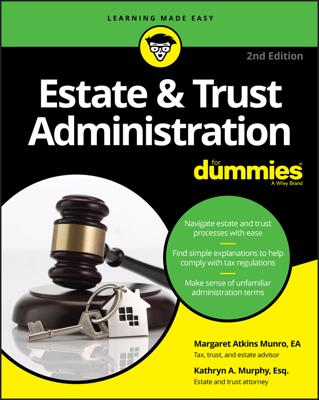As the executor of an estate, you must value the estate’s real estate holdings at the time of the decedent’s death. You may be able to use the real estate assessment as the value at the date of death. If the assessed value doesn’t match the market value of the real estate, you can ask a real estate tax assessor to appraise the real estate.
Assigning value to real estate may be the trickiest value to obtain because no two pieces of real estate are identical, and real estate is valued by looking at comparable sales. To value real estate, keep the following in mind:
Sometimes, you can use the assessment as the value at the date of death. The assessed value is the value your local real estate tax assessor places on the property for real estate tax purposes. Compare the assessed value with similar properties sold around the date of death or for sale at that time in your locale to see whether the assessed value is in the ballpark.
If the values are comparable and the estate is small enough that it won’t have an estate tax, using the assessed value works, because it clearly reflects the market value of the property at the date of death.
If the assessed value in your area doesn’t reflect the market value of the real estate, have the real estate appraised. If you’re unsure based on your market comparison, ask the local real estate tax assessor.
If a federal estate tax return (Form 706) is required, have the real estate appraised. As with all estate appraisals, hire a reputable appraiser who has experience in preparing estate appraisals.
The appraiser typically refers to several comparable properties (that is, properties that have sold recently and are as similar to your property and as close in location as possible), in addition to other factors, in determining a value as of the date of death.
The appraiser adds or subtracts value based upon the differences between your real estate and the comparable sales in arriving at a date-of-death value for your property. For instance, an additional bathroom in your property increases the value. If your lot is smaller than the comparables, your value decreases.
Oftentimes, you have a buyer for the real estate before you have a chance to obtain an appraisal. Provided you sell it in an arm’s length transaction (a transaction between the executor and someone who has no relationship to the executor or the estate) soon after death, you use the sale value as the date-of-death market value.

